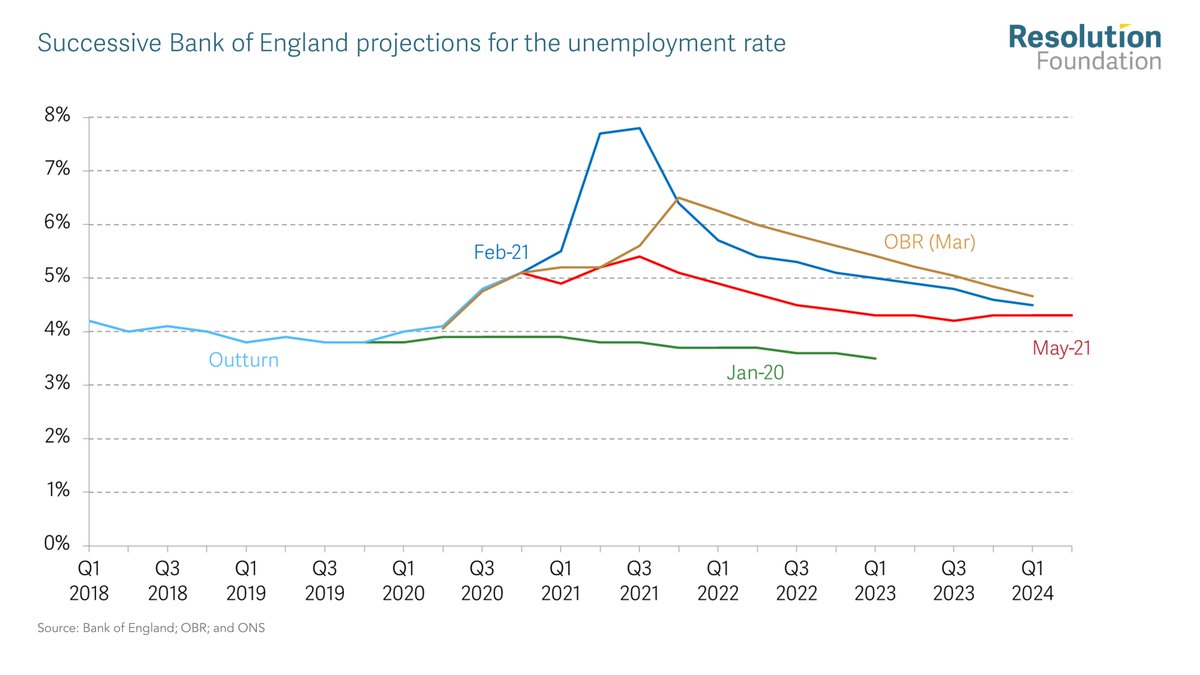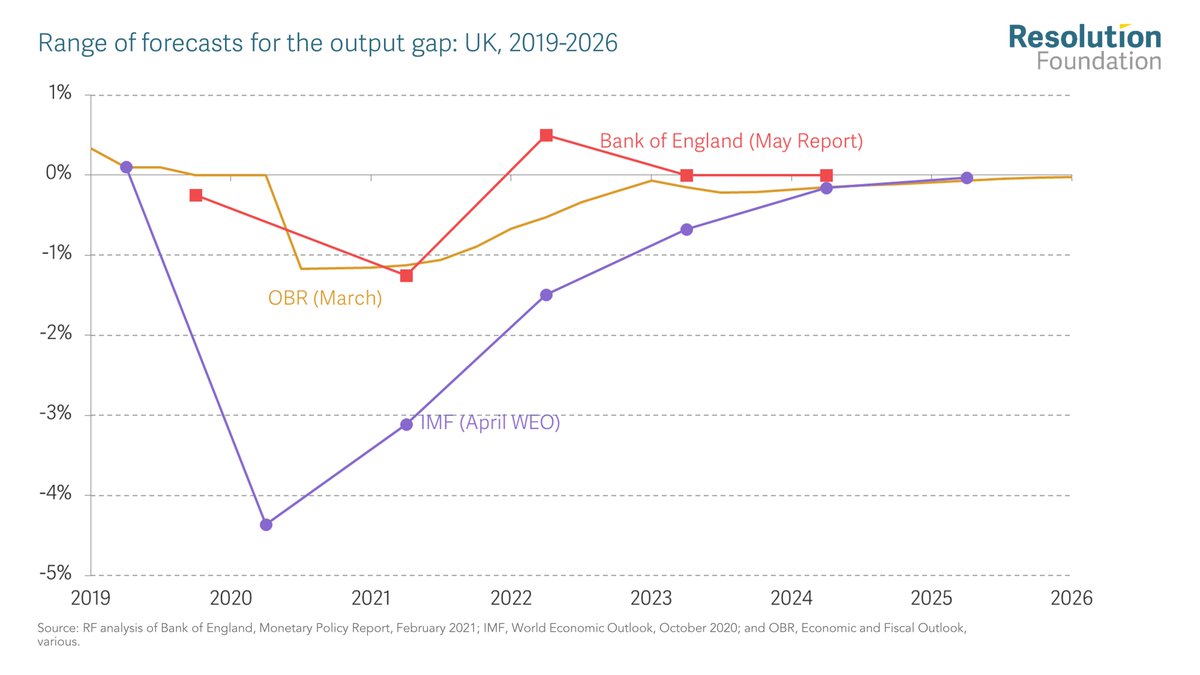. @bankofengland’s MPC on hold today, as expected, with Bank Rate remaining at historic lows of 0.1% and the stock asset purchases maintained at £895bn (*but* with Andy Haldane voting to reduce this).
Short thread to follow…
Short thread to follow…
MPC are now very bullish on the outlook with its forecast pointing to growth of 7.3% this year.
If realised that would be the fastest since 1941.
If realised that would be the fastest since 1941.
That puts the MPC right at the top of the pack in terms of forecasts for 2021 - with only JP Morgan having a stronger forecast in the April HMT panel.
Strikingly the Bank has also marked down its estimate of the long-run hit from the crisis to just 1.25%.
Inflation is set to spike up sharply above the BoE& #39;s 2% target.
@bankofengland make it clear that this is all about energy prices and doesn& #39;t tell us about the medium term (ie the thing MPC care about when setting rates).
@bankofengland make it clear that this is all about energy prices and doesn& #39;t tell us about the medium term (ie the thing MPC care about when setting rates).
Unemployment now peaks at & #39;just& #39; 5.4% in Q3 this year (roughly 1.9 million people, or a rise of 200k), way below the peak of 7.8% in February.
The MPC& #39;s optimism on growth (and strong inflation forecast) is reflected in a slim margin of spare capacity - just 1.25% in Q2 despite the economy being more than 6% smaller than the pre-crisis path.
This is difficult to measure but striking that the IMF have around 3%.
This is difficult to measure but striking that the IMF have around 3%.
Obviously all this will add fuel to the fire of those already talking about policy tightening (as will Andy Haldane actually voting to reduce the stock of QE).
No surprise then that longer-term rates have been rising - with a fairly chunky tightening in financial conditions seen since the start of the year.
This will be a headwind to growth just as the Government is planning to withdraw its support schemes.
This will be a headwind to growth just as the Government is planning to withdraw its support schemes.
Reasons to be cautious about tightening policy:
- UK has still experienced one of the largest GDP hits of any economy.
- Recovery will not be complete given damage to firms& #39; and lower-income households& #39; balance sheets; unemployment will rise.
- UK has still experienced one of the largest GDP hits of any economy.
- Recovery will not be complete given damage to firms& #39; and lower-income households& #39; balance sheets; unemployment will rise.
All this means MPC should remain patient and continue to support the heavy lifting that fiscal policy is doing in supporting the economy.
The Bank& #39;s guidance that it will not tighten "at least until there is clear evidence that significant progress is being made in eliminating spare capacity" helps in this context.

 Read on Twitter
Read on Twitter









